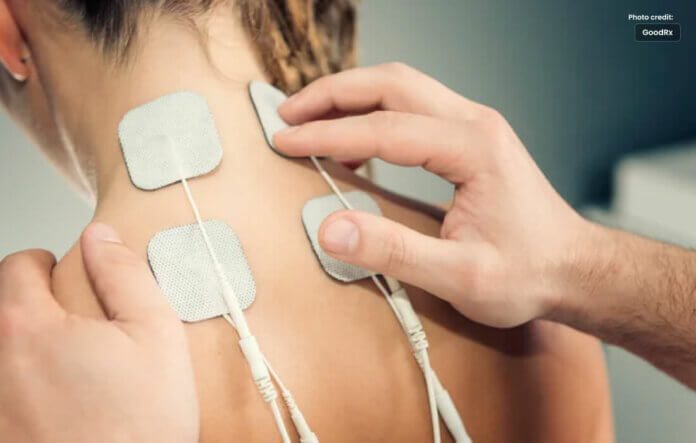TENS units in the realm of pain management and rehabilitation signifies a growing interest in natural and non-invasive approaches to health and wellness.
Living with chronic pain or recovering from an injury can be a challenging journey. While medications and therapies are essential for managing pain, many individuals seek alternative, non-invasive methods to complement their treatments. One such solution gaining popularity is the TENS unit. Further, we will explore the world of TENS (Transcutaneous Electrical Nerve Stimulation) units, how they work, their benefits, and why they have become a go-to choice for pain relief and rehabilitation.
Understanding TENS Units
TENS units are portable, battery-operated devices design to manage pain by delivering low-voltage electrical impulses to specific areas of the body. These electrical impulses target nerve fibers, blocking pain signals from reaching the brain, thus providing a sense of relief and comfort. The stimulation also triggers the release of endorphins, which act as natural painkillers, further enhancing the therapeutic effect.
How TENS Units Work
TENS units consist of electrodes that are placed on the skin’s surface near the area of pain or discomfort. The electrodes are connect to the main unit, which allows users to control the intensity, frequency, and duration of the electrical pulses. The sensation felt during TENS therapy is often described as tingling or massaging.
The electrical stimulation can be adjust to different settings based on individual preferences and the nature of the pain .Basically Some TENS units offer various modes, such as continuous stimulation, bursts, or pulsations, to cater to different types of pain and patient sensitivities.
Benefits of TENS Therapy
- Non-Invasive and Drug-Free: TENS therapy offers a non-invasive and drug-free alternative to manage pain, making it a safe option for those looking to avoid medications or invasive procedures.
- Effective Pain Relief: TENS units have proven to be effective in providing relief for various types of pain, including muscle pain, joint pain, nerve pain, and pain associated with conditions like arthritis and fibromyalgia.
- Portable and Convenient: TENS units are compact and portable, allowing users to carry them anywhere and use them whenever needed, making pain management convenient and accessible.
- Customizable Settings: With adjustable settings, users can personalize their TENS therapy to suit their specific needs and preferences.
- Reduced Dependency on Pain Medications: For individuals relying on pain medications, TENS therapy can complement their treatment plan and potentially reduce the need for higher doses of medication.
- Post-Operative Recovery: TENS units have shown promise in aiding post-operative recovery by reducing pain, inflammation, and muscle tension.
Safety Considerations
While TENS therapy is generally safe and well-tolerated, there are some essential considerations:
Consultation: It is crucial to consult with a healthcare professional before using a TENS unit, especially if you have a pacemaker, heart condition, epilepsy, or are pregnant.
Proper Placement: Correct electrode placement is vital for effective and safe TENS therapy. Follow the instructions provided by the manufacturer or seek guidance from a healthcare professional.
Not a Cure: TENS therapy is a pain management tool and does not treat the underlying cause of the pain or injury.
Conclusion
The ability to relieve pain without resorting to medications or invasive procedures makes TENS units an attractive option for those seeking alternative solutions.
Remember, while TENS therapy can provide significant pain relief and comfort, it should be use in conjunction with other treatments and under the guidance of a healthcare professional. For individuals with chronic pain or in the recovery phase, a TENS unit can be a gateway to a more comfortable, drug-free life, and a step towards holistic well-being.




